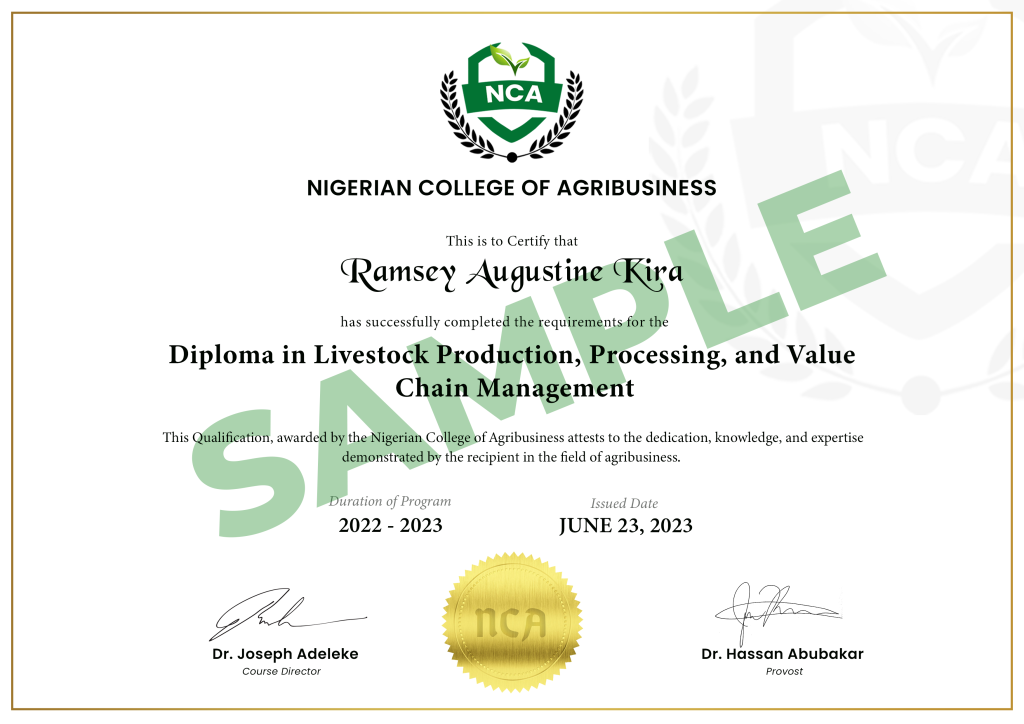December 11, 2023
12 Weeks
N350,000
$500
ONLINE/BLENDED
In today’s data-driven world, agribusinesses can gain a competitive edge by harnessing the power of data. The Diploma in Data Analytics for Agribusiness is an immersive program designed to equip professionals with the knowledge and skills to leverage data for informed decision-making, optimizing operations, and driving growth in the agricultural sector. This comprehensive diploma program covers data collection, analysis, visualization, and interpretation within the context of agribusiness.
Agricultural Managers: Those responsible for overseeing farm operations, crop management, and agricultural production can use data analytics to improve efficiency and decision-making.
Agricultural Scientists: Researchers and scientists in agriculture can leverage data analytics for experiments, analysis, and agricultural innovation.
Agribusiness Analysts: Analysts working in agribusiness, such as market researchers, can enhance their skills in data analysis to understand market trends and consumer behavior.
Farmers and Growers: Farmers can use data analytics to optimize crop yields, resource allocation, and soil management.
Livestock Managers: Professionals involved in animal farming can benefit from data analysis for herd management and health monitoring.
Supply Chain Managers: Those overseeing the supply chain in agriculture can improve logistics, distribution, and inventory management through data analytics.
Environmental Scientists: Environmental experts can analyze data to assess the environmental impact of agribusiness practices.
Government and Regulatory Agencies: Professionals in government agencies can use data analytics for monitoring and enforcing agricultural regulations and policies.
Upon successful completion of the program, participants will earn a prestigious Diploma in Data Analytics for Agribusiness from the Nigerian College of Agribusiness. At convocation, graduating students will receive their Diploma as well as their Certificate and Transcript of academic records.
Faculty members are experienced data analytics professionals with extensive experience working and generating actionable insights with data generated from the food and agriculture industry.

Beneficiary Bank: Zenith Bank Plc
Account Number: 1228461510
Account Name: Nigeria College of Agribusiness
Do you need any further assistance regarding this program, send an email to: [email protected] or send chat with a program executive on WhatsApp via: 08109532513 (Nigeria), +2349129158989 (International)
Ready to Begin your application process? Click on “Apply Now” to access the application form

Our mission is to cultivate a vibrant, sustainable and profitable agribusiness sector that drives economic growth and social progress across Africa and beyond.
We are committed towards educating a new generation of agribusiness sector leaders that will transform the economic fortunes of the African continent
© NCAEDU 2023 All Rights Reserved.